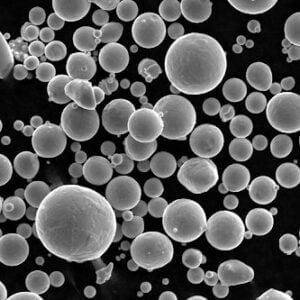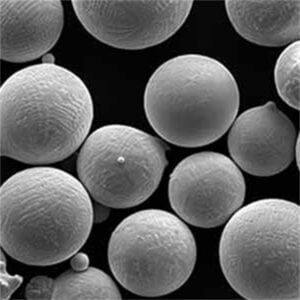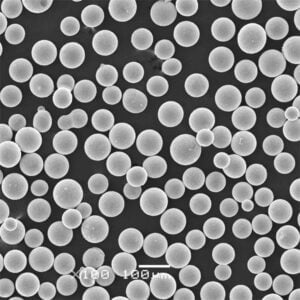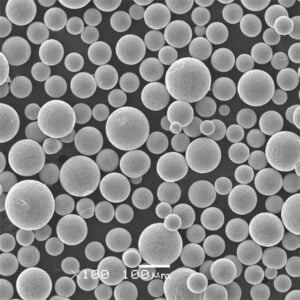Welcome, dear reader! Today, we’re diving deep into the fascinating world of ASTM F136. Now, you might be wondering, “What in the world is ASTM F136?” Don’t worry, I’ve got you covered. By the end of this extensive guide, you’ll know everything there is to know about this remarkable material.
Overview of ASTM F136
ASTM F136, also known as Titanium 6Al-4V ELI (Extra Low Interstitial), is a titanium alloy widely recognized for its use in the medical field. This alloy stands out due to its biocompatibility, corrosion resistance, and excellent mechanical properties, making it a go-to material for medical implants, surgical instruments, and other critical applications.
Key Details of ASTM F136
- Composition: Titanium, Aluminum, Vanadium
- Properties: High strength, low weight, corrosion resistance, biocompatibility
- Applications: Medical implants, surgical instruments, aerospace components
- Specifications: ASTM F136 standard defines the quality and characteristics of the alloy

Types, Composition, Properties, and Characteristics
To truly appreciate ASTM F136, it’s essential to understand its composition, properties, and characteristics. Let’s break it down:
Composition of ASTM F136
| Element | Percentage |
|---|---|
| Titanium (Ti) | 88 – 90% |
| Aluminum (Al) | 5.5 – 6.75% |
| Vanadium (V) | 3.5 – 4.5% |
| Oxygen (O) | ≤ 0.13% |
| Carbon (C) | ≤ 0.08% |
| Nitrogen (N) | ≤ 0.05% |
| Hydrogen (H) | ≤ 0.0125% |
| Iron (Fe) | ≤ 0.25% |
Properties and Characteristics of ASTM F136
| Property | Description |
|---|---|
| Density | 4.43 g/cm³ |
| Young’s Modulus | 110 GPa |
| Ultimate Tensile Strength | 860 MPa |
| Yield Strength | 795 MPa |
| Elongation at Break | 15% |
| Hardness | 300 HV |
| Thermal Conductivity | 6.7 W/m·K |
| Electrical Resistivity | 1.7 µΩ·m |
| Biocompatibility | Excellent (meets ASTM F136 standards) |
| Corrosion Resistance | High (resistant to bodily fluids and chemicals) |
Applications of ASTM F136
ASTM F136 is primarily used in the medical field, but its applications extend to other industries due to its unique properties.
Medical Applications
| Application | Description |
|---|---|
| Orthopedic Implants | Hip replacements, knee joints, spinal implants |
| Dental Implants | Tooth roots, abutments, bridges |
| Surgical Instruments | Scalpels, forceps, retractors |
| Craniofacial Implants | Plates, screws for reconstructive surgery |
| Cardiovascular Implants | Heart valves, stents |
Aerospace Applications
| Application | Description |
|---|---|
| Aerospace Fasteners | Bolts, nuts, and screws for aircraft assembly |
| Structural Components | Airframe structures, landing gear |
| Engine Parts | Turbine blades, compressor disks |
Industrial Applications
| Application | Description |
|---|---|
| Chemical Processing | Equipment for chemical plants, reactors |
| Marine Applications | Shipbuilding, offshore drilling components |
| Sporting Goods | High-performance bicycles, golf clubs |
Specifications, Sizes, Grades, Standards
When working with ASTM F136, it’s crucial to adhere to the specified standards to ensure the material’s integrity and performance.
Specifications and Standards
| Standard | Description |
|---|---|
| ASTM F136 | Standard specification for wrought titanium-6Aluminum-4Vanadium ELI (extra low interstitial) alloy for surgical implant applications. |
Sizes and Grades
| Size Range | Description |
|---|---|
| Bars | Diameter: 6mm to 150mm |
| Sheets | Thickness: 0.5mm to 5mm |
| Plates | Thickness: 5mm to 100mm |
| Wires | Diameter: 0.1mm to 10mm |
| Grades | Grade 23 (Ti 6Al-4V ELI) |
Suppliers and Pricing Details
Finding the right supplier is key to ensuring you get high-quality ASTM F136 material. Here are some reputable suppliers and their pricing details.
Top Suppliers
| Supplier | Description | Pricing (Approximate) |
|---|---|---|
| ATI Metals | Leading global manufacturer and supplier of titanium and other specialty materials. | $50 – $100 per kg |
| Timet (Titanium Metals Corporation) | Major producer of titanium-based products with a focus on aerospace and medical applications. | $60 – $110 per kg |
| VSMPO-AVISMA | Largest titanium producer globally, supplying high-quality titanium alloys. | $55 – $105 per kg |
| Toho Titanium | Japanese supplier known for high purity and advanced titanium products. | $65 – $115 per kg |
| Arcam AB (GE Additive) | Specializes in additive manufacturing and advanced materials for medical and aerospace sectors. | $70 – $120 per kg |
Comparing Pros and Cons
When considering ASTM F136 for your application, it’s essential to weigh its advantages and limitations.
Advantages of ASTM F136
| Advantage | Description |
|---|---|
| Biocompatibility | Excellent compatibility with human tissues, making it ideal for medical implants. |
| Corrosion Resistance | Highly resistant to bodily fluids and chemicals, ensuring longevity. |
| Mechanical Properties | High strength-to-weight ratio, making it strong yet lightweight. |
| Versatility | Suitable for a wide range of applications, from medical to aerospace. |
Limitations of ASTM F136
| Limitation | Description |
|---|---|
| Cost | Relatively expensive compared to other materials. |
| Machinability | Requires specialized equipment and techniques for machining. |
| Availability | May have longer lead times due to high demand and specific manufacturing processes. |
Specific Metal Powder Models
In the realm of additive manufacturing and advanced applications, several specific metal powder models of ASTM F136 stand out. Here are some notable examples:
Top Metal Powder Models
| Model | Description |
|---|---|
| Ti64 ELI by Arcam AB | High-purity titanium powder for Electron Beam Melting (EBM) technology. |
| TLS Ti6Al4V ELI by TLS Technik | High-quality powder for selective laser melting (SLM) and other additive manufacturing processes. |
| AP&C Ti-6Al-4V ELI by GE Additive | Spherical titanium powder designed for optimal flowability and packing density in additive manufacturing. |
| Ti-6Al-4V ELI by Carpenter Additive | High-performance powder for various 3D printing technologies, ensuring consistent quality and properties. |
| AMTi-6Al-4V ELI by Tekna | Plasma atomized titanium powder for superior performance in additive manufacturing. |
| Ti-6Al-4V ELI by Oerlikon Metco | High-quality powder for laser cladding, additive manufacturing, and other advanced processes. |
| Ti-6Al-4V ELI by LPW Technology | Engineered powder for high-strength, lightweight applications in aerospace and medical fields. |
| Ti-6Al-4V ELI by Praxair Surface Technologies | Consistent and high-purity powder for demanding additive manufacturing applications. |
| Ti-6Al-4V ELI by Sandvik | Premium titanium powder for additive manufacturing, ensuring excellent mechanical properties and biocompatibility. |
| Ti-6Al-4V ELI by Renishaw | Versatile powder for a wide range of additive manufacturing technologies, offering high performance and reliability. |
Comparative Analysis of Metal Powder Models
To help you make an informed decision, let’s compare these metal powder models based on various parameters.
Performance Comparison
| Model | Flowability | Packing Density | Purity Level | Price Range |
|---|---|---|---|---|
| Ti64 ELI by Arcam AB | Excellent | High | Ultra-High | $100 – $150/kg |
| TLS Ti6Al4V ELI by TLS Technik | Very Good | High | High | $90 – $140/kg |
| AP&C Ti-6Al-4V ELI by GE Additive | Excellent | Very High | Ultra-High | $110 – $160/kg |
| Ti-6Al-4V ELI by Carpenter Additive | Very Good | High | High | $95 – $145/kg |
| AMTi-6Al-4V ELI by Tekna | Excellent | High | Ultra-High | $105 – $155/kg |
| Ti-6Al-4V ELI by Oerlikon Metco | Very Good | High | High | $100 – $150/kg |
| Ti-6Al-4V ELI by LPW Technology | Excellent | Very High | Ultra-High | $110 – $160/kg |
| Ti-6Al-4V ELI by Praxair Surface Technologies | Very Good | High | High | $95 – $145/kg |
| Ti-6Al-4V ELI by Sandvik | Excellent | Very High | Ultra-High | $110 – $160/kg |
| Ti-6Al-4V ELI by Renishaw | Excellent | High | High | $100 – $150/kg |
Pros and Cons Comparison
| Model | Pros | Cons |
|---|---|---|
| Ti64 ELI by Arcam AB | High purity, excellent flowability, reliable performance | Higher cost compared to some alternatives |
| TLS Ti6Al4V ELI by TLS Technik | Consistent quality, good price-to-performance ratio | Slightly lower packing density compared to others |
| AP&C Ti-6Al-4V ELI by GE Additive | Ultra-high purity, very high packing density | Higher price range |
| Ti-6Al-4V ELI by Carpenter Additive | High performance, consistent properties | Mid to high price range |
| AMTi-6Al-4V ELI by Tekna | Superior performance, high purity, excellent for additive manufacturing | Higher cost |
| Ti-6Al-4V ELI by Oerlikon Metco | Reliable performance, good flowability | Mid to high price range |
| Ti-6Al-4V ELI by LPW Technology | Ultra-high purity, excellent packing density | Higher price range |
| Ti-6Al-4V ELI by Praxair Surface Technologies | Consistent quality, good performance | Mid to high price range |
| Ti-6Al-4V ELI by Sandvik | Premium quality, excellent mechanical properties | Higher cost |
| Ti-6Al-4V ELI by Renishaw | High reliability, versatile applications | Mid to high price range |
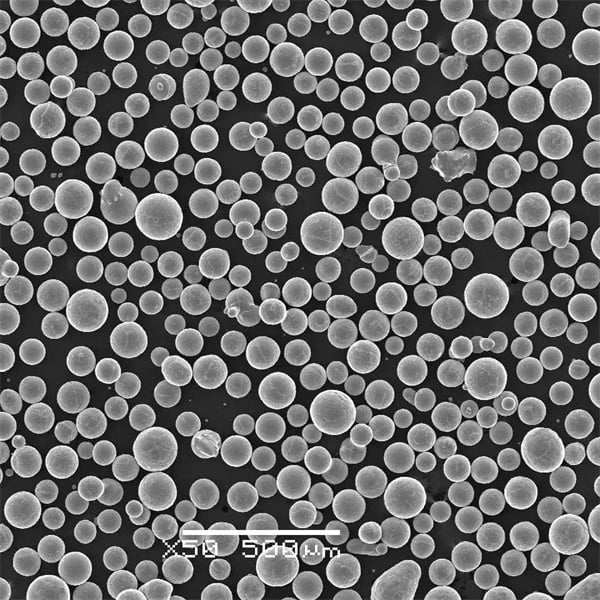
FAQ
What does ASTM F136 stand for?
ASTM F136 refers to the standard specification for wrought titanium-6Aluminum-4Vanadium ELI (extra low interstitial) alloy used primarily for surgical implant applications.
Why is ASTM F136 preferred for medical implants?
ASTM F136 is preferred for medical implants due to its excellent biocompatibility, corrosion resistance, and high mechanical strength. These properties ensure that the material can withstand the harsh environment of the human body and remain functional over long periods.
What are the primary elements in ASTM F136?
The primary elements in ASTM F136 are Titanium (Ti), Aluminum (Al), and Vanadium (V), with Titanium being the predominant component.
How is ASTM F136 typically manufactured?
ASTM F136 is manufactured through various processes including forging, rolling, and heat treatment to achieve the desired mechanical properties and ensure compliance with the standard specifications.
Apart from medical, where else is ASTM F136 used?
Beyond the medical field, ASTM F136 is also used in aerospace for structural components, fasteners, and engine parts, as well as in industrial applications like chemical processing and marine engineering.
Is ASTM F136 suitable for 3D printing?
Yes, ASTM F136 is widely used in additive manufacturing, especially in the form of titanium powder for 3D printing technologies like Electron Beam Melting (EBM) and Selective Laser Melting (SLM).
Is ASTM F136 expensive?
ASTM F136 is relatively more expensive than other materials due to its high performance and specialized applications, with prices typically ranging from $50 to $160 per kilogram depending on the supplier and form (bars, sheets, powder, etc.).
Conclusion
There you have it – a comprehensive guide to ASTM F136! We’ve covered everything from its composition and properties to its applications, specifications, and even a deep dive into various metal powder models for advanced manufacturing. Whether you’re considering ASTM F136 for medical implants, aerospace components, or any other high-performance application, this guide should serve as your go-to resource.





